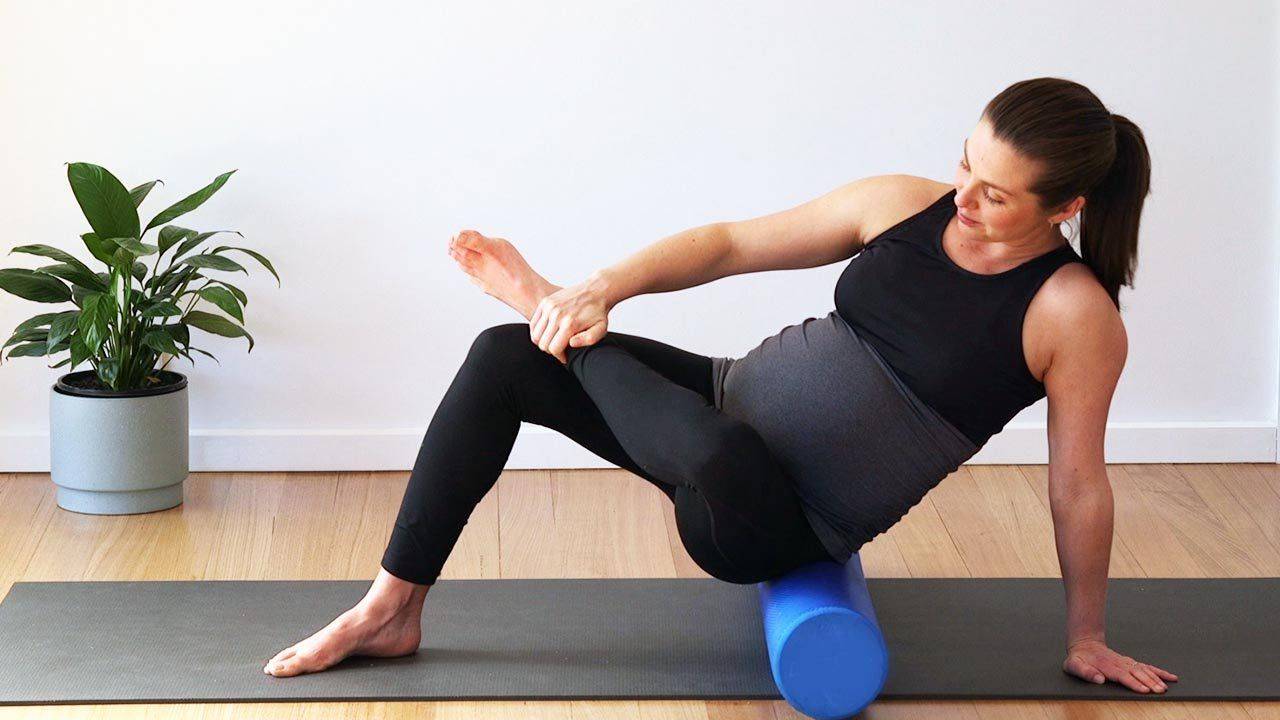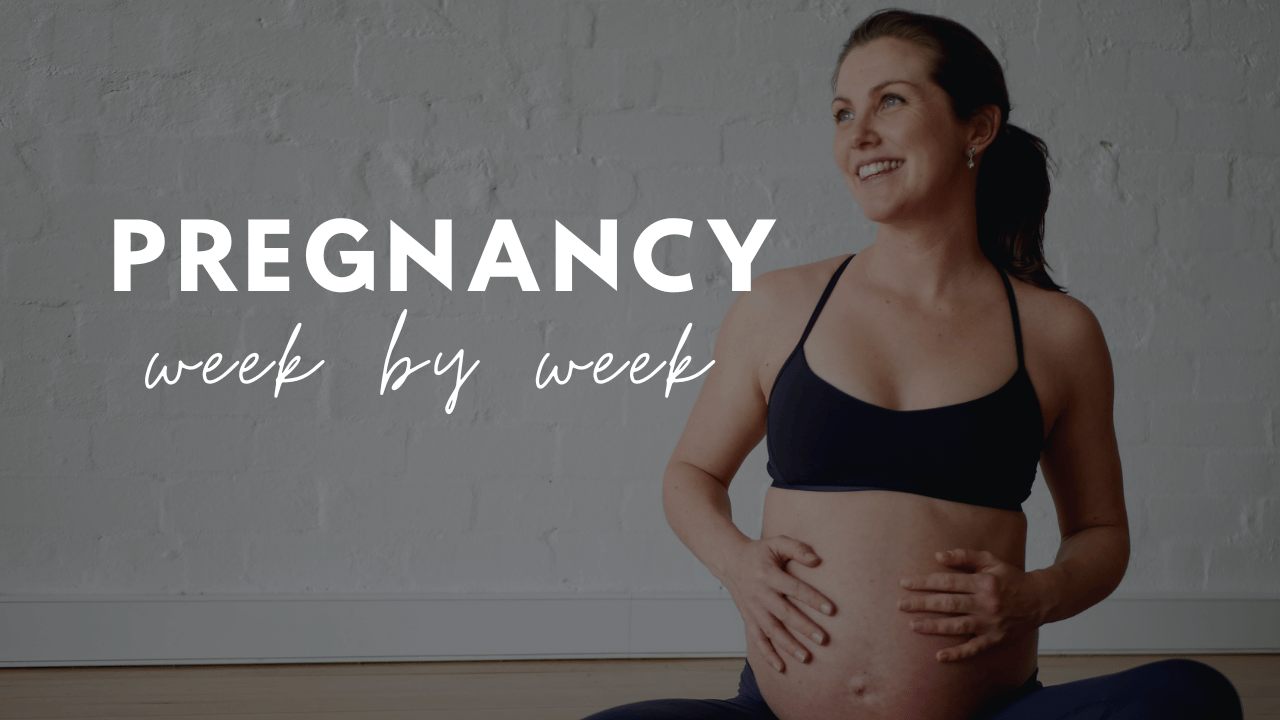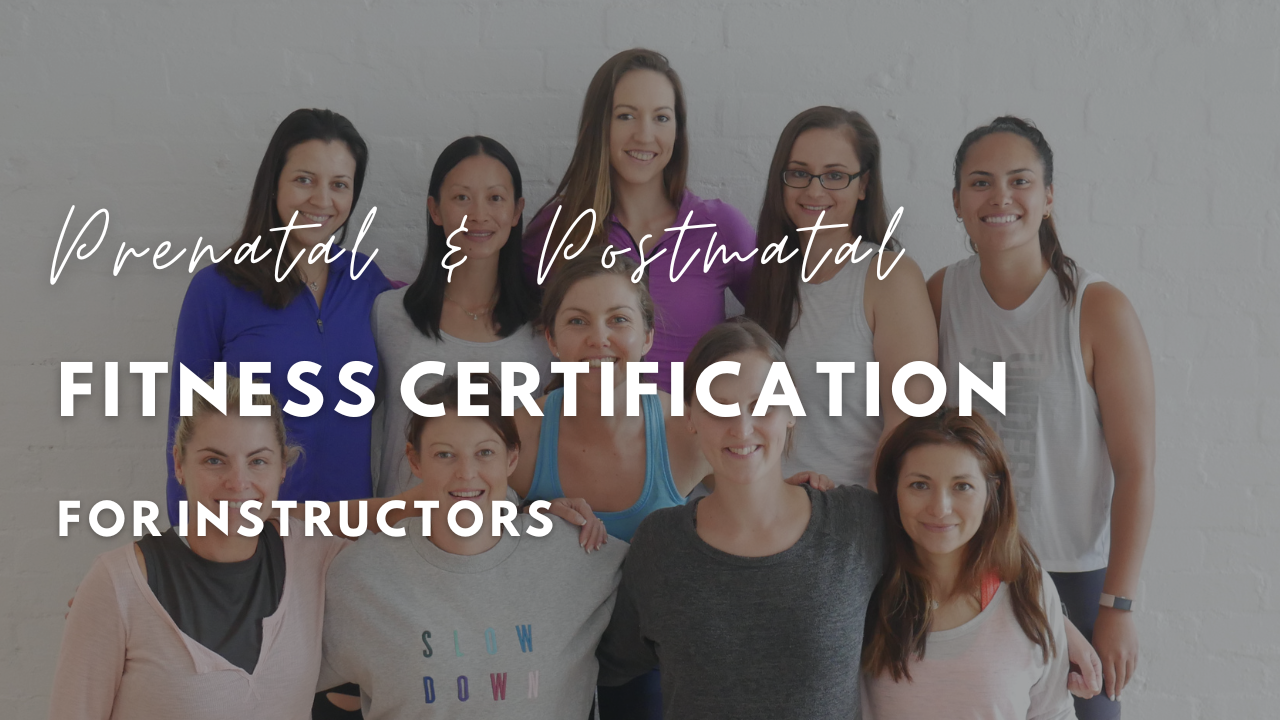Pregnancy Body Changes and Exercise

Pregnancy Body Changes and Exercise
You will likely experience significant body changes when you are pregnant. As a result, you need to choose exercises that take these following changes into account.
From weight gain and hormonal shifts to changes in balance and flexibility, being aware of how your body is changing during pregnancy is key to adapting your fitness routine accordingly.
In my online program I provide tips on how to safely modify your exercise regimen to accommodate these changes and ensure a healthy pregnancy.
During pregnancy, your body goes through many changes that can affect your exercise routine.
One common change is weight gain, which can impact your balance and coordination.
Your center of gravity shifts as your belly grows, so be cautious with high-intensity workouts.
Another change is increased flexibility due to hormonal changes.
This can make you more prone to injuries, so focus on exercises that promote stability and strength.
Your heart rate and blood pressure also increase during pregnancy, so listen to your body and avoid pushing yourself too hard.
Lastly, relaxin hormone is released, which can loosen your ligaments and joints, making you more susceptible to sprains and strains.
Remember to always consult with your healthcare provider before starting or continuing any exercise routine during pregnancy.
Take care of yourself and your baby, and make adjustments as needed to stay safe and healthy.
Pregnancy Body Changes and Exercise
1. Your Balance
Your growing belly shifts your center of gravity which places stress on joints and muscles, especially those in your pelvis and lower back.
As a result, you are at greater risk of falling because you are less stable and more likely to lose your balance.
2. Breathing
When you are pregnant, your need for oxygen increases. This may affect your ability to do strenuous exercise, especially if you are overweight or obese.
3. Joints
The pregnancy hormone called relaxin can cause the ligaments that support your joints to become relaxed.
Therefore your joints become more mobile and at risk of injury. Because of this reason I want you to avoid jerky, bouncy, or high-impact exercises.

Understanding Physical Changes During Pregnancy
Pregnancy is a time of significant physical transformation. As the baby grows, a woman's body adapts in various ways to accommodate the new life within. Hormonal changes can affect ligaments and joints, making them more flexible.
Weight gain in pregnancy is another common change, as is the shift in the body's center of gravity, which can affect posture and balance.
Additionally, the increase in blood volume and changes in cardiovascular function are crucial for supporting the developing fetus but can also pose new challenges for the expectant mother.
Understanding these changes is vital to recognizing the importance of tailoring exercise routines during pregnancy.
It can help in minimizing discomfort and reducing the risk of injury while maintaining an active lifestyle.
It's essential to listen to one's body and consult with healthcare providers when making decisions about physical activity during this special time.
The Benefits of Exercise for Pregnant Women
Regular exercise during pregnancy offers numerous benefits for both mother and child. It can help manage weight gain, improve mood, increase energy levels, and promote better sleep.
Staying active also reduces the risk of pregnancy-related complications such as gestational diabetes and preeclampsia.
For the fetus, maternal exercise has been linked to a healthier birth weight, improved stress tolerance, and even developmental benefits.
Moreover, exercise can help pregnant women maintain muscle strength and endurance, which can be beneficial during labor and delivery. It can also aid in a quicker postpartum recovery.
However, it's important to note that each pregnancy is unique, and exercise regimens should be personalized and approved by a healthcare professional.
Safe Exercises During Pregnancy
When it comes to exercising during pregnancy, safety is paramount. Low-impact activities such as walking, swimming, and prenatal yoga are generally considered safe and beneficial for most pregnant women.
These exercises maintain cardiovascular health without putting excessive strain on the joints and muscles. Strength training can also be safe, provided it's done with proper form and moderate weights.
It's essential to avoid activities with a high risk of falling or abdominal trauma, such as horseback riding or skiing. Contact sports are also not recommended.
As the pregnancy progresses, exercises that involve lying flat on the back should be modified to avoid reducing blood flow to the uterus. Always warm up before exercising and stay hydrated throughout.
Exercise Precautions and Tips
While exercise provides many benefits during pregnancy, it's crucial to approach it with caution.
Pregnant women should avoid overheating and stay well-hydrated. It's also important to avoid vigorous exercise in high humidity or extreme temperatures.
Wearing comfortable clothing and supportive footwear can help manage the additional body weight and prevent falls.
Listening to the body is key; if an exercise causes pain or discomfort, it should be stopped immediately.
It's also advisable to avoid exercises that involve jerky, bouncy, or high-impact movements.
Pregnant women should be aware of the signs of:
- overexertion
- dizziness
- headache
- shortness of breath
- or chest pain
Maintaining a Healthy Exercise Routine Post-Delivery
After delivery, exercise remains an important aspect of a new mother's health routine.
It can help in losing the baby weight, strengthening the core muscles, and improving overall mood and energy levels. However, the body needs time to recover from childbirth, and the return to exercise should be gradual.
New mothers can start with gentle activities such as walking and pelvic floor exercises. As the body heals and with the approval of a healthcare provider, more vigorous activities can be added.
It's also important for postpartum women to focus on proper nutrition and adequate rest to support their recovery and the demands of new motherhood.
Weight Gain when Pregnant
One of the biggest challenges that pregnant individuals face is weight gain. And let's be real, it can be really tough to deal with.
You're carrying around extra weight, your body is changing shape, and it can be hard to feel confident in your own skin.
Another challenge is body discomfort - your back might be aching, your feet might be swollen, and just getting around can be a real struggle.
Exercise has its Benefits
And on top of all that, there's so much misinformation out there about exercise during pregnancy.
You might hear things like "don't lift heavy weights" or "you need to stop exercising altogether," but the truth is, exercise is really beneficial for you and your baby.
There's So Much Misinformation
I think one of the reasons that there's so much misinformation out there is because every pregnancy is different.
What works for one person might not work for another, and it can be really hard to know what's safe and what's not.
Plus, your body is changing so rapidly during pregnancy that it can be hard to keep up.
One day you might be feeling great, and the next day you're exhausted and in pain.
It's no wonder that so many pregnant individuals get discouraged and just give up on exercise altogether.
Being Healthy is Good for Baby's Health
But the thing is, exercise is really important for your health and your baby's health. It can help with weight management, reduce the risk of gestational diabetes, and even make labor and delivery easier.
So, how do you navigate the challenges of pregnancy and still find a way to exercise safely?
Specific Body Changes
Let's talk about the specific changes that happen in your body during pregnancy. One of the biggest changes is the hormonal shift that happens.
Your body is producing all sorts of new hormones that can affect your mood, your energy levels, and even your physical abilities.
Another change is weight distribution - you're carrying around extra weight, and that can affect your balance and your posture.
And let's not forget about the physical changes that happen - your pelvis expands, your abdominal muscles stretch, and your entire center of gravity shifts.
Modify Your Prenatal Workouts
All of these changes can affect your ability to exercise, and they can make it harder to do the things that you used to do before pregnancy.
For example, you might find that you can't run as far as you used to, or that you get winded more easily.
You might need to modify your workouts to accommodate your changing body, and that can be really tough.
But the good news is that with a few simple modifications, you can still exercise safely and effectively during pregnancy.
Important tips for exercising during pregnancy.
First, it's essential to talk to your doctor before starting or continuing any exercise routine. They can give you personalized advice and help you create a plan that's right for you.
Second, listen to your body - if you're feeling tired or uncomfortable, it's okay to take a break or modify your workout. And third, focus on low-impact exercises that don't put too much strain on your joints.
Pelvic Floor Exercises
Another important tip is to prioritize pelvic floor exercises when pregnant. Your pelvic floor muscles are essential for supporting your uterus and your baby, and they can help with labor and delivery too.
You can do pelvic floor exercises anywhere, anytime, and they're really beneficial for your overall health.
Finally, stay hydrated and fueled - drinking plenty of water and eating nutrient-dense foods can help you feel your best during pregnancy.
By following these tips, you can exercise safely and effectively during pregnancy. And the benefits are so worth it - you'll feel more confident, more energetic, and more prepared for motherhood.





